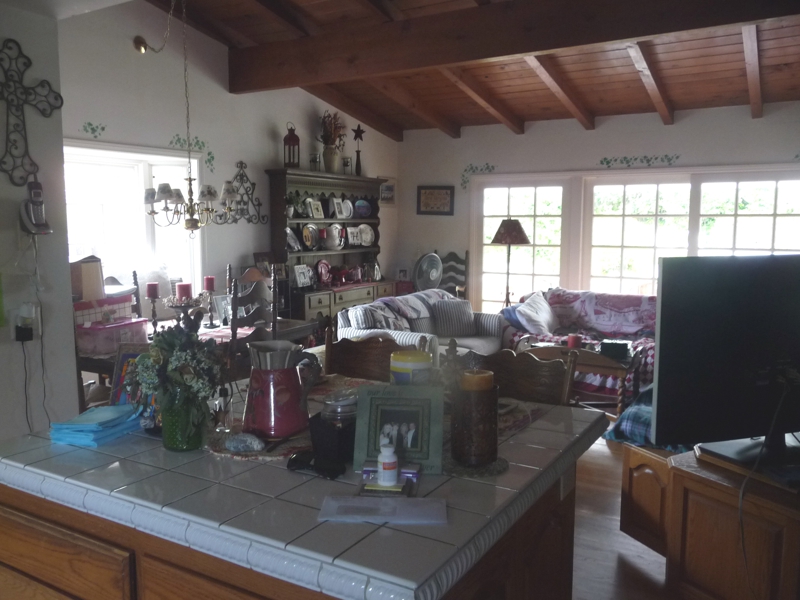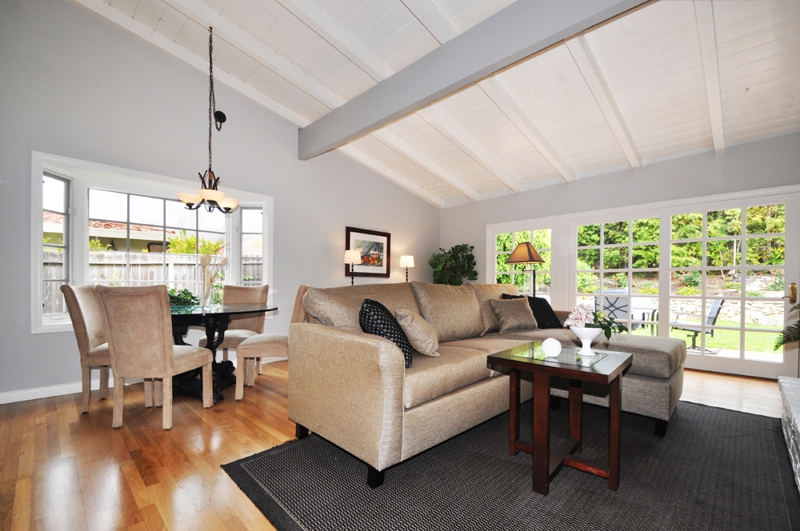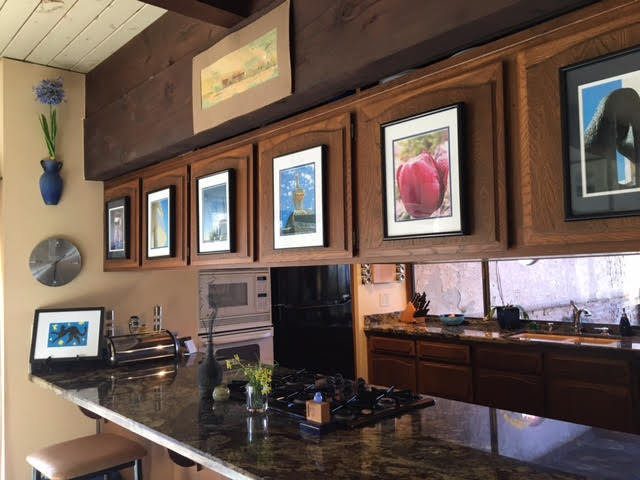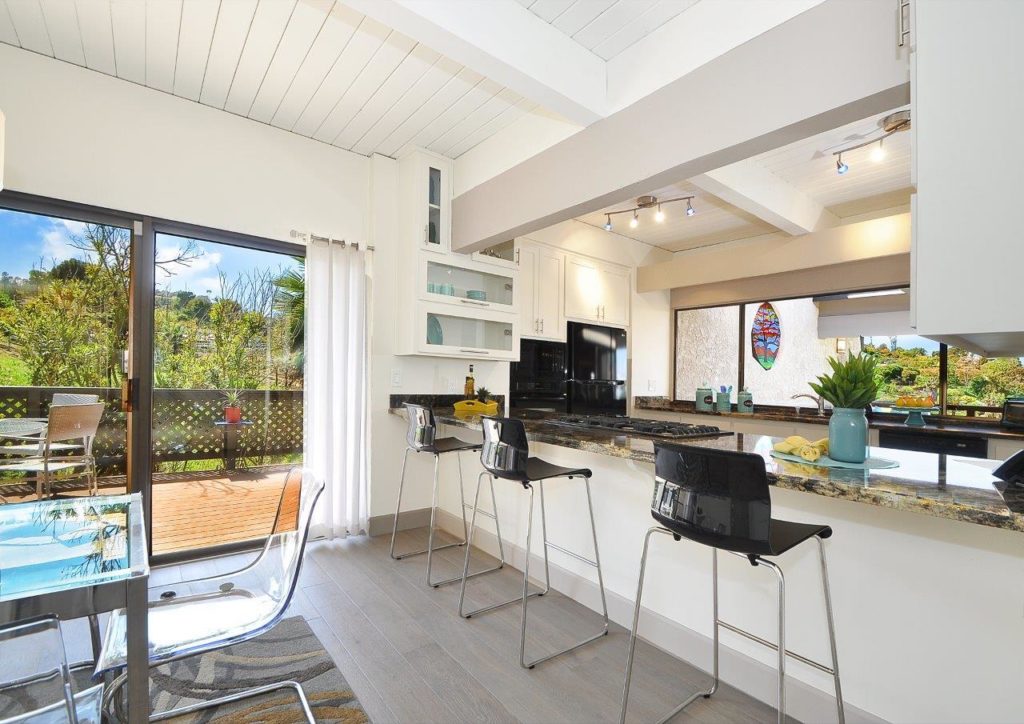What is Staging?
Staging your home means presenting your home to potential buyers in the best possible light in order to make a lasting impression with them. It is all about creating a first impression of the home that will lead to a quick sale. Buyers tend to develop their opinion of a home immediately upon driving up to it and develop a lasting impression of a home within the first five seconds that they enter the house. Staging is meant to broaden the appeal of your home to the greatest number of potential buyers possible. All of the pictures below were staging projects that I worked on with Wendy Wharton of Staging by Wendy Wharton.
Staging vs Renovation/Updating
Staging generally works with the existing physical condition of the property and making it as marketable as possible. Some properties could also benefit by a renovation or updating of the physical finishes ofr the property such as new paint and carpet, updating the finishes in the kitchen ( such as adding granite counters or stone back-splash ), updating bathrooms through the use of seamless shower enclosures to make the bathroom appear larger and replacing old ceramic tile with new stone tile or spray a new finish on old tiles, or new door hardware and lighting fixtures. An additional service that I provide which I believe is unique to real estate agents is managing the process of a renovation or updating of your home in preparation of listing the property. For an example of this see the following links :
Before and After – My recent renovation
Staging Steps:
De-clutter: Buyers like homes with a bright and open feeling to them. Store all of your knick-knacks and most of your books, and get rid of any extraneous things that are lying around your home. Your kitchen counters should be completely bare (we will add some decorative touches later). If your rooms seem crowded with furniture, store a few pieces away. It is important to make a home seem as light and bright as possible. Heavy draperies which significantly cut down on the light entering the home should be taken down and a different window decoration used.


Depersonalize: When a buyer tours your home, they need to be able to visualize the home as being their home, not yours. Even though you love the family portraits hanging on the walls, store them away. Home builders spend a fortune designing their model home interiors to appeal to the broadest range of home buyers possible. Even though you love the color purple, and have painted your living room a deep shade of velvet, you should consider repainting the room in a subtle earthtone.
Cleaning: This does not mean your normal cleaning. It means a top to bottom deep cleaning. Your home should sparkle! Carpets, of course, should be deep cleaned, and if worn, they should be replaced.
Landscaping: Your buyer’s first introduction to your home is your landscaping. This is called “curb appeal” and is extremely important to making that all important first impression. Seasonal flowers should be planted to add color. Overgrowth should be cut back, especially if it interferes with the view of your home from the street.
Decorating and Accessorizing: A simple rearrangement of your furniture pieces may be all that is required to improve the feeling of openness in your room, and to change a visitors focal point of the room. If you have a beautiful fireplace, but have furniture that distracts from it, rearrange it so that the focal point of the room is the fireplace. Bookshelves that have had many of their books packed away can be used to create attractive simple displays. The use of interior plants, which you often see in model homes, can create a sense of bringing the outdoors inside. Decorative items such as candlesticks, which should be lit when touring home buyers or when having an open house, also add a sense of calm and livability to a home.
Staging a vacant home: Staging a vacant home can greatly decrease the amount of time to sell a home. Most people have a hard time visualizing how furniture will layout when looking at an empty room.
What does Staging Costs: Staging a home does not have to be expensive to be effective. Simply following the basic steps above, while utilizing as much of the seller’s existing furniture and decorative items as possible, can achieve extremely effective results at a very low cost. Additional accent pieces and furniture can also be purchased with the eye on utilizing the items in the sellers new home. For homes that are vacant, however, a professional staging company may be engaged to temporarily furnish a home. These costs can range from $3,000 to $15,000 depending on the size of the home.
Where can I find a Staging Professional: For most homes with existing furnishings, I can provide staging services to you as part of my realtor services. I have years of fashion and design experience early in my career that gives me an ability to review your home from the eyes of a buyer to make the best use possible of your existing furniture and decorative items. I have helped clients choose colors and patterns for new paint and wallpaper, as well as helping select new finishes for cabinets and kitchen counters in preparing a home for sale. I have worked closely with Wendy Wharton who does a great job, click on the following link: Staging by Wendy Wharton.
Making a home improvement prior to sale: In addition to staging, a seller may consider making a home improvement to increase the value of the home as well as making the home easier and quicker to sell.




